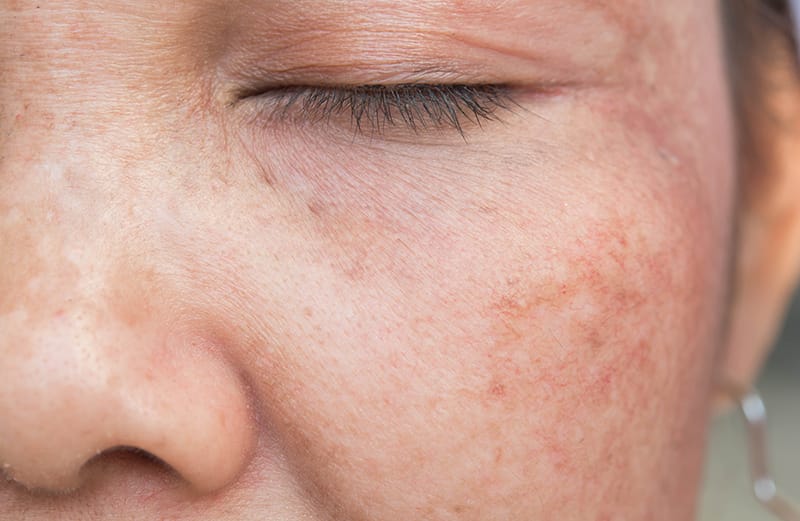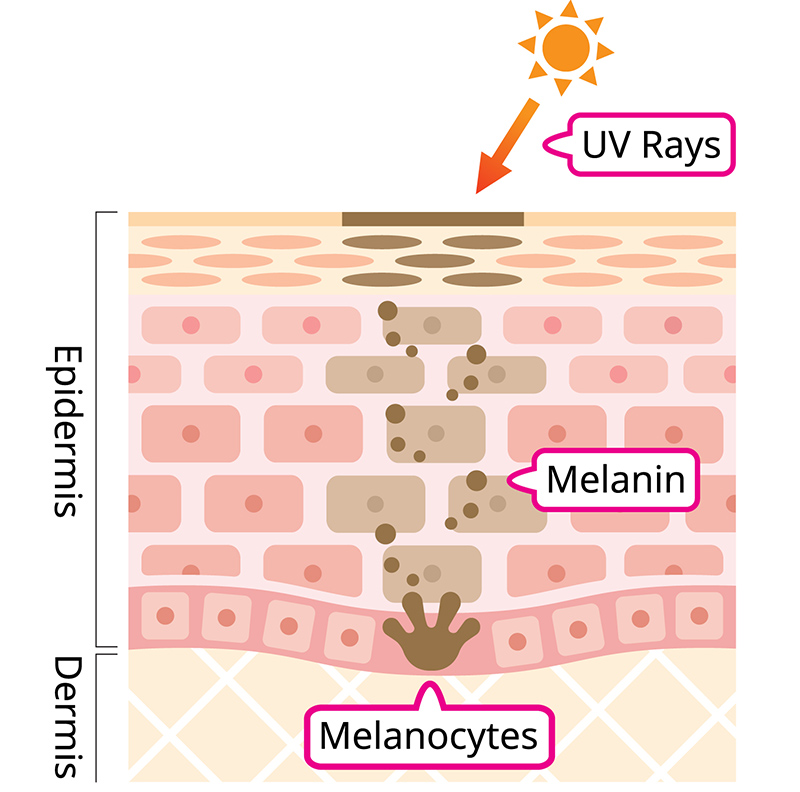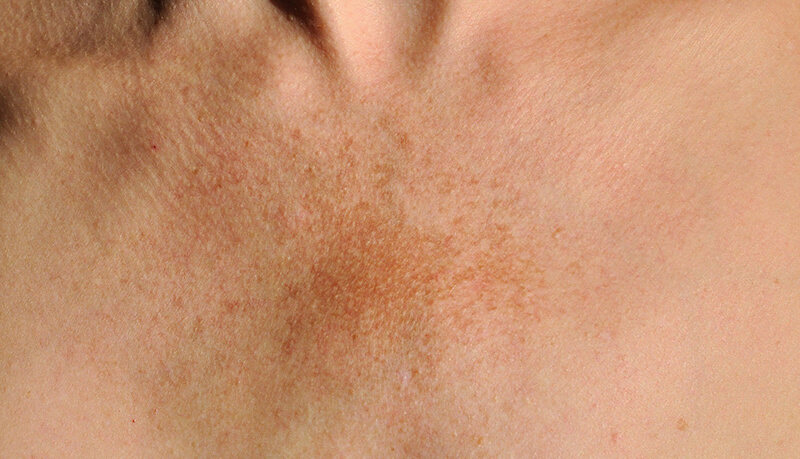
Prevent and Treat Hyperpigmentation
Prevent and treat dark spots on your skin with proper skincare and some helpful tips. Don’t be embarrassed by hyperpigmentation. Figure out the cause and treat the issue.
The reality is that hyperpigmentation occurs in more people than you may realize. Hyperpigmentation is a common problem that affects all skin types.
While this skin condition is often harmless, it could also be a sign of illness that requires medical treatment. It’s best to consult a doctor before taking action to remedy the issue.
What is Hyperpigmentation?
Hyperpigmentation is a condition in which dark patches appear on the skin. This darkening of the skin occurs when melanocytes become hyper-stimulated.
In turn, from this excess stimulation, melanocytes create an increased production of melanin. Melanin is the pigment that gives skin it’s color. So, when our bodies begin to produce more of it, it causes us to tan or in this case, develop dark spots.
People with a fairer complexion have less melanin and tend to develop hyperpigmentation more easily than others. However, individuals with darker complexions may have more difficulty getting rid of hyperpigmentation.
Causes of Hyperpigmentation
There are a variety of causes for hyperpigmentation. The causes range from simple day-to-day activities to possible warning signs of illness. Here’s what you should know:
Hyperpigmentation can occur as a result of excessive exposure to the sun. With sun damage, darker spots appear in areas that are always subjected to the sun i.e., face, arms, and legs.
Melasma is characterized by brown patches that commonly appear on women during pregnancy. Heredity, sun exposure, and hormones play key roles in its development.
Inflammation can lead to discoloration of the skin. Dark spots can be triggered in areas that have become inflamed due to acne (acne scars), insect bites, or minor injuries.
Dark patches on the skin can also be a sign of serious illnesses such as lupus or cancer. Consult a doctor to rule these medical issues out.
Preventing Hyperpigmentation
The primary cause of hyperpigmentation is the sun. Avoid exposing yourself to its damaging rays for prolonged periods of time.
Sunburn leads to inflammation which is a big proponent of dark spots. Doctors recommend using a daily sunscreen with at least SPF 30 protection.
Since dark spots can also be caused by an injury, acne, or even a bug bite, avoid touching affected areas to prevent further inflammation.
Stay moisturized with ingredients that benefit the skin. Choose a product that will restore your skin’s barrier and boost cell turnover rate.
How to Treat Hyperpigmentation
If you have hyperpigmentation, the following will help reduce its appearance and minimize further damage:
- Vitamin C boosts collagen and helps reverse cell damage.
- Vitamin E protects skin from further damage and offers anti-inflammatory benefits.
- Hyaluronic acid offers additional moisture and speeds up wound healing.
- Retinol to boost cell turnover rate.
Consult a medical professional for further information about topical prescription treatments. These treatments may include products that offer hydroquinone, azelaic acid, or corticosteroids; agents that provide a bleaching effect.
For more serious skin issues, laser treatment, ablative or nonablative, can be effective.
Ablative lasers remove the top layer of skin, effectively erasing the skin issue.
Nonablative lasers, on the other hand, pass through the skin without removing any. Both laser types are used to correct hyperpigmentation, skin texture, and tone.



